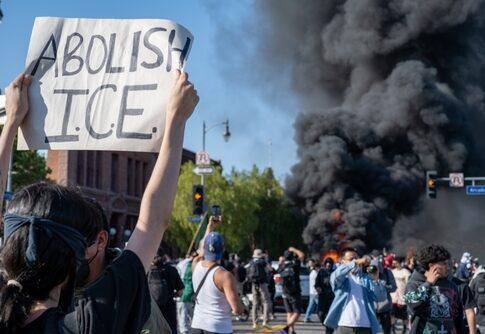A new executive directive from Los Angeles Mayor Karen Bass threatens to erode federal immigration enforcement, igniting a fierce debate over sanctuary cities and the rule of law.
Mayor Bass’s Directive and Its Implications
On July 11, 2025, Los Angeles Mayor Karen Bass issued Executive Directive No. 12, which prohibits city resources from being used for federal immigration enforcement. This move is part of a broader effort by the city to protect undocumented immigrants and resist federal raids. The directive has been criticized by federal officials, who argue that it obstructs law enforcement and endangers officers tasked with upholding immigration laws.
The directive establishes new protocols and support systems for immigrant communities, further intensifying the ongoing battle over immigration policies. It highlights a growing divide between local and federal authorities, with Los Angeles positioning itself as a sanctuary city committed to defending immigrant rights.
Bass Admits Harboring Illegals; Guatemalan Rep. Calls ICE “Terrorist”; Catholic Bishop Links Agents to Nazi War Criminals https://t.co/5WoIdY69f3
— T (@Rifleman4WVU) August 13, 2025
Federal Raids and Local Resistance
Throughout June and July 2025, federal immigration raids in Los Angeles have intensified, marking a significant escalation in enforcement actions. These raids have been met with strong opposition from city officials and advocacy groups, who argue that aggressive enforcement tactics undermine public safety and erode trust between communities and law enforcement.
Federal agencies, including the U.S. Department of Homeland Security (DHS) and Immigration and Customs Enforcement (ICE), maintain that their operations are legal and necessary for national security. However, the surge in enforcement has led to increased tensions, with reports of violence against ICE agents and public demonstrations against the raids.
Controversial Rhetoric and Public Backlash
The debate over immigration enforcement has been further fueled by controversial remarks from public figures. Representative Delia Ramirez labeled ICE as a “terrorist organization,” while Bishop Mark E. Brennan compared ICE agents to Nazi war criminals and slave catchers. These statements have sparked outrage among supporters of federal enforcement and have contributed to the polarization of public opinion on immigration policy.
Such rhetoric underscores the deep divisions within the country over how to balance immigration enforcement with the protection of immigrant rights. The conflict between local and federal authorities in Los Angeles serves as a microcosm of the broader national debate, with significant implications for the future of sanctuary cities and federal-local relations.
The legal battles and political rhetoric surrounding immigration enforcement in Los Angeles continue to evolve, with both short-term and long-term implications for the city and the nation. As legal challenges progress and public opinion remains divided, the outcomes of these disputes will likely shape the landscape of immigration policy in the United States for years to come.


Just cut off ALL Federal money to California!